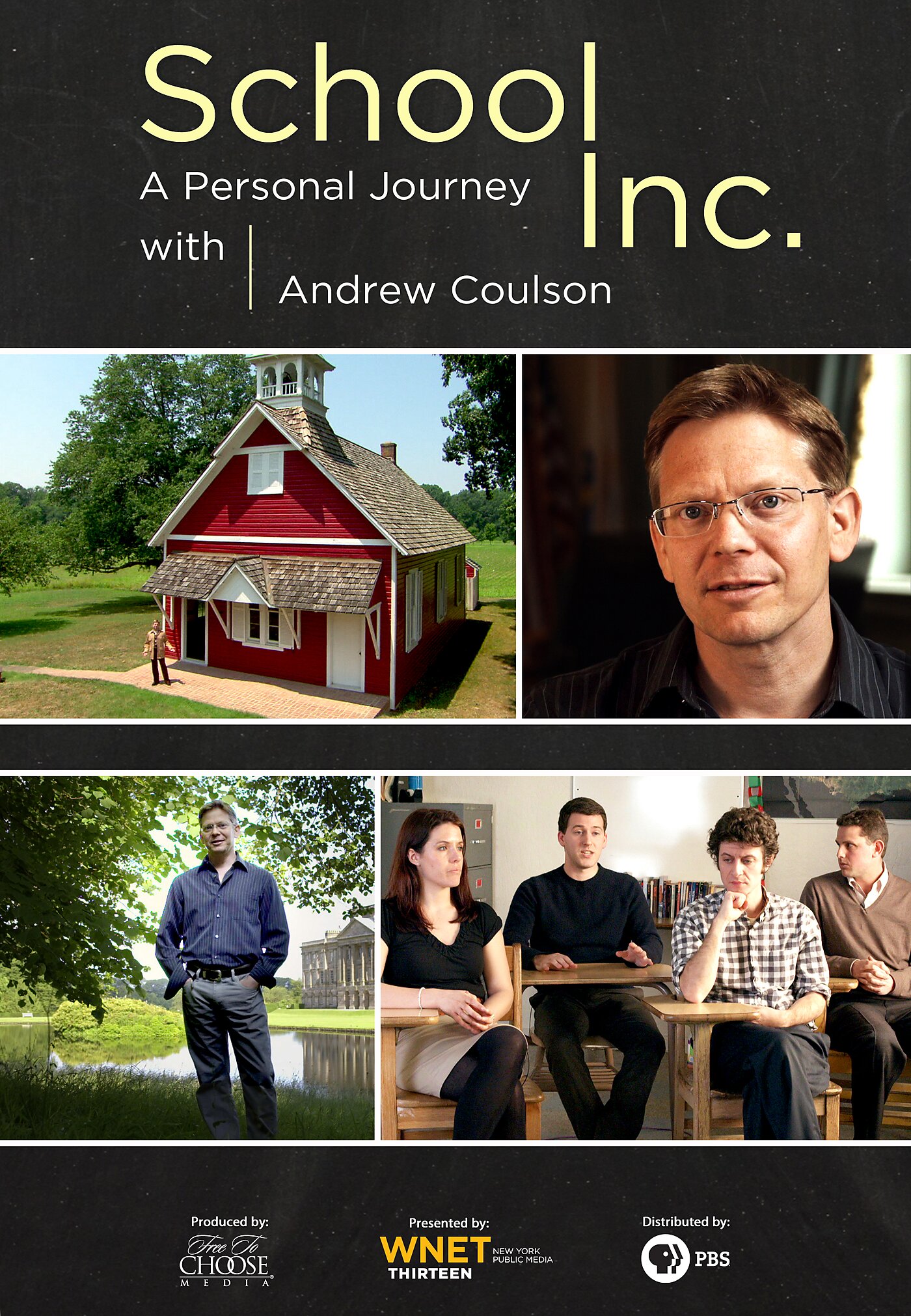Before it even hit the fiber-optics, defenders of public schooling were agitated that PBS stations would be airing Andrew Coulson’s documentary School Inc., which takes viewers on a ride through time and around the world to learn how innovation happens, and why it happens too rarely in education. Last Friday a new critique was published, this time on the website of Phi Delta Kappa, a professional association of educators. In the piece, Loyola University Chicago professor Amy Shuffelton asks, “Why did PBS and its local New York affiliate, WNET, agree to broadcast and distribute such an unbalanced, journalistically questionable series on such a controversial and complicated topic as education?”
Perhaps the answer is that PBS officials thought the series had high-quality content, and discerning viewers could determine for themselves whether they accepted its premise. Writes Shuffelton: “According to WNET’s Specter [Shuffelton does not provide a first name], the second part of the series title, ‘A Personal Journey’ is key to understanding the project. ‘When you read that subtitle, you know that you’re going to get a point of view, and we’re not opposed to presenting different points of view.’”
The documentary certainly is clear that you are getting one person’s perspective. And while I don’t watch a lot of television, PBS or otherwise, it seems unlikely that PBS programs such as Bill Moyer’s Journal or Democracy Now! have been committed to strict, equal time for opposing views. As with public schooling, there is good reason to oppose publicly funded television because it is impossible to represent the views of every taxpayer equally. But PBS exists, and points of view seem to be articulated without having to be balanced out.
Of course, the best way to judge the quality and merits of School Inc. is to view it yourself, which you can do here, or by watching this space for future airings in your market. And you should of course read opposing views like Shuffelton’s, though don’t expect objectivity there, either. For instance, Shuffelton says that Coulson quotes Horace Mann and Thomas Jefferson out of context, but does not say how. Worse, she suggests that Coulson believes discrimination in government funding is a solution to religious conflicts in education:
Coulson does consider the possibility of civic discord in the last ten minutes of the series, but his answers are not convincing. School Inc. turns to Supreme Court Justice Steven Breyer’s dissent in the case Zelman v Simmons-Harris, which upheld an Ohio voucher program. Breyer worried that publicly financed voucher programs, which funnel federal funds to religious schools, raise the possibility of religiously based social conflict.
Coulson’s response should raise concern for anyone worried about First Amendment rights. To show that social conflict is unlikely to follow, he uses the example of a voucher program proposed in New Orleans. One of the schools eager to participate was a Muslim school. When Louisianans got wind of this, controversy followed. So the Muslim school dropped out. In Coulson’s eyes, the problem was thereby solved.
Wait, I found myself thinking as I watched, that’s discrimination, not a defense of First Amendment rights. I expected Coulson to explain why it was not, but the series moved on to clips of jazz performances, which, according to Coulson, demonstrate Americans’ ability to get along.
This is just incorrect. For one thing, Coulson devotes nearly half of the final episode to social conflict, choice, and equality. And far from condoning exclusion of the Muslim school, he explains that a fundamental problem with vouchers is that while they create more freedom and equality than majority-rules public schools, they can still unjustly compel people to furnish funds for teachings they oppose, opening choice up for government discrimination.
The solution, Coulson suggests, are tax credits for people who choose to donate to groups that award scholarships. Want to give to a group providing scholarships for Montessori students? Go ahead! Catholic schools? Sure! Muslim institutions? Absolutely! This maximizes freedom for both families and funders, and minimizes incentives to legally exclude groups.
I think there is a huge amount of value to be found in School Inc., but others can certainly disagree. What they should not try to do is squelch the documentary, or misrepresent what it says. Oh, and if they want to learn even more about Andrew and debate his ideas, they can check out this new book. After all, the more open discussion we have, the better!

